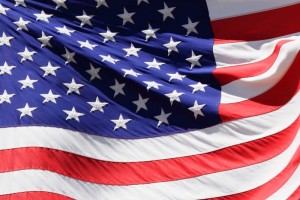
American Exceptionalism has been described by historians since the mid-1800s. Definitions fall basically into three camps.
- Because of its unique origins, born from revolution, America is unique from all other nations. Never having Kings and Queens it had always been ruled by the people thru its elected representatives.
- America has a unique mission to transform the world and has the responsibility to ensure that its form of government always exists.
- America’s mission, resources, and history make it superior to all other nations.
The first premise makes the case on its own that American Exceptionalism is simply a metaphor for White Exceptionalism in that it assumes the “origin” of America begins when white people arrived. Some history books pay a bit more attention to the inhabitants already present when European’s got here. Generations of Americans, however, were taught from American History books whose first chapters began in Europe with religious freedom being the main reason for their migration.
What you might not know is that a high percentage of colonists were criminals. Beginning in 1615 British courts started sending their convicts to the colonies to alleviate their own large criminal populations. It took until 1697 before colonial ports began refusing “convict ships”. In 1917 British Parliament passed the Transportation Act revising the method by which convicts were sent to America. Between 1700 and 1775, over 50,000 more convicts were sent to America with over 20,000 settling in Virginia. Donald Trump speaks of Mexico sending “not their best” and claiming “they’re rapists” in his popular claims with no evidentiary basis. England formally and systemically sent America its convicted criminals who could be had for a lower rate than the indentured servants who also helped build America. And then, of course, there were the slaves who were cheaper still.
Making America’s unique history the basis for a claim of exceptionalism requires we ignore its reliance on slave labor, indentured servants and criminals, all of whom were exploited for the benefit of the white landowners and politicians who benefited from their abuse. We haven’t even mentioned taking the land from the remaining existing inhabitants that had managed to survive being killed off by European diseases.
The second part of the initial premise is that America has since the Revolution engaged in self-rule by duly elected representatives of “the People” when the reverse is often true. Examination of the current Presidential Election has revealed that the Political parties often have more control than the people whether it be thru the obscure rules that select delegates to party conventions, the electoral college and the combination of redistricting and gerrymandering. Our elections often give the people a chance to offer an opinion, but one that can be taken away should the desire be great enough. We may never have had a King or Queen but true power rests in the hands of such a small number of people that we do have an Oligarchy and Citizen’s United has set that in stone.
The next premise is about America’s unique status in the world and its mission to ensure its form of government always exists. It speaks volumes that America presumes it has the right to dictate to the world and to superimpose its values on other countries. If one pays special attention, there is a pattern as to when and where America usurps control of the decisions of others.
Routinely America has overthrown leaders and promoted insurgencies in countries where the populations are other than white. While suggesting our goal is to preserve or promote Democracy. We’ve never had a problem supporting dictatorships or monarchies when we had favorable access to their resources or they provided a strategic alliance in their part of the world. Our status as “The World’s Policeman” is actually correct as long as we know that protect and serve only applies to America and even then primarily to the institutions primarily under the control of our white power brokers. Unfortunately, their needs also rely upon the revenue generated from the sale of arms across the world and depend on the continued instability caused by the wars they promote.
However one might feel about the first two false premises. It is the third that makes America the most dangerous, even to many of its own citizens. The conservative right is reviving the idea of American Exceptionalism and the way they use it is proof of the prejudice that is its foundation. They say our history, mission, and resources make us superior to all other nations. Efforts are underway in Texas and other places to incorporate the teaching of American Exceptionalism in history books. Ensuring the propaganda of superiority is entrenched for future generations. They feared our actual history wasn’t “patriotic enough”.
Make no mistake, when politicians speak of American Exceptionalism it is much more likely to apply to Mexico, Iraq or Iran, China, Japan, Venezuela or any country where the inhabitants are primarily brown, black or yellow. America cares deeply about the human rights abuses or terrorist attacks in France, Brussels or England but not so much in Sierra Leonne or Kenya. Israeli lives matter much more than Palestinian ones. American Exceptionalism has always been about the preservation of white interests and it is the demographic march of America into a majority-minority nation that provokes its revival.
It is American Exceptionalism which allows the country to engage in voter suppression, gerrymandering to ensure state governments are controlled by giving more power to rural white areas, disenfranchising the more “urban” large cities. We worry about the southern border dividing us from our brown neighbors while the northern Canadian border elicits no fear. American Exceptionalism is but the polite name by which those white Americans so inclined can promote their ideals.










